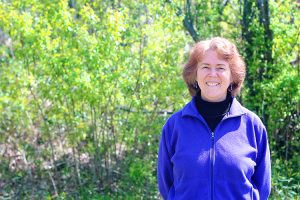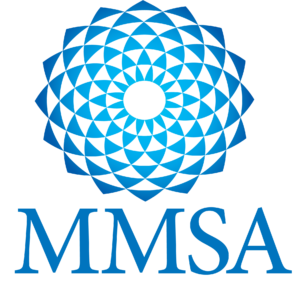 MMSA Title: Senior Research Scientist
MMSA Title: Senior Research Scientist
Hometown: Newcastle
Education: B.Sc. in Physics, Mathematics, and Applied Mathematics(Rhodes University); B.Sc. Honors in Theoretical Physics (University of Cape Town); M.Sc. in Astrophysics (University of Cape Town); Ph.D. in Science Education (U.C. Berkeley)
Something you’re proud of at MMSA: The incredible ACRES team and the awards we’ve won.
What is your teaching/learning philosophy: As a constructivist, I always believed in the importance of supporting learners where they are in their understandings. As an informal educator, I think it’s equally important to support them in where they are with their interest in a STEM topic area. Following Dewey I believe in the power of experiential learning combined with reflection.
STEM passion area: Physics because such a small set of principles can predict and explain so many phenomena.
What do you like most about your role at MMSA: My colleagues, and the freedom the organization provides to innovate.
Favorite STEM-related memory: Catching butterflies as a child and mounting them in collections.
What did you do before you worked at MMSA: I served as a Division Director at NSF.
What do you like to do in your free time: I love to travel, especially to wild places with interesting wildlife.
What memory from your childhood would you like to share that exemplifies why you do the STEM education related work that you do: My favorite TV program was Star Trek. I just loved the way the Enterprise crew could solve any problem by studying the evidence and drawing conclusions, making a story that unfurled gradually and deliciously, with lots of surprises along the way. I think the best science inquiry process is like that too – investigation driven by personal interest combined with analytical thinking. It’s quite different from the way science was taught at my school!
Sue’s Bio: Sue Allen is a Senior Research Scientist at the Maine Mathematics and Science Alliance, where she has been since August of 2013. Sue received her Ph.D. in Mathematics and Science Education from the University of California at Berkeley, and served as Director of Visitor Research & Evaluation at the Exploratorium in San Francisco, where she spent 15 years studying learning on the museum floor. From 2008-2011 she had various roles at the National Science Foundation, including leading the Informal Science Education (subsequently renamed AISL) program, and the Division of Research on Learning. She currently leads a Noyce-funded project to provide highly engaging online professional development to afterschool providers around the nation, using peer-coaching and video-based reflective activities. She is particularly interested in methods for assessing learning, system-level thinking about learning ecosystems, and research-practice partnerships. She has served on several national expert committees to characterize STEM learning in out-of-school settings. Outside of work, Sue loves to go game-watching on her occasional trips to her homeland of South Africa. She is also an avid diver and enjoys time in nature.
Pronouns: she, her, hers
Phone: (207) 626-3230 x125
Email: all emails are first initial last name at mmsa.org
Projects:
Afterschool Coaching for Reflective Educators in STEM (ACRES)
STEM Guides
WeatherBlur
Publications:
EXPERT COMMITTEE PUBLICATIONS
(2009) National Academies NRC Consensus Study Committee on Learning Science in Informal Environments. Resulting publication: Learning Science in Informal Environments: People, Places, and Pursuits. Washington DC: The National Academies Press.
(2009) National Academies NRC Volume on Learning Science in Informal Environments: Practitioner Volume. Resulting publication: Surrounded by Science. Washington DC: The National Academies Press.
(2008) National Science Foundation invited participant in ISE Evaluation Workshop (2007). Resulting publication: Friedman, A. (Ed.). (March 12, 2008). Framework for Evaluating Impacts of Informal Science Education Projects [Online]. (Available at: http://insci.org/resources/Eval_Framework.pdf).
MONOGRAPHS
Allen, S. (2004). Finding significance. San Francisco, CA: Exploratorium. (Excerpts available online at http://www.exploratorium.edu/partner/significance)
Gutwill, J.P. & Allen, S. (2010). Group inquiry at science museum exhibits: Getting visitors to ask juicy questions. Walnut Creek: Left Coast Press.
BOOK CHAPTERS AND ARTICLES
Peterman, K., Garlick, S., Besley, J., Allen, S., Lambert, K.F., Nadkarni, N.M., Rosin, M.S., Weber, C., Weiss, M., & Wong, J. (2021). Boundary spanners and thinking partners: Adapting and expanding the Research-Practice Partnership literature for Public Engagement with Science (PES). Journal of Science Communication 20(7). https://doi.org/10.22323/2.20070801
Peterman, K., Robertson, J.E., Allen, S., Byrd, S., Nickerson, B., & Kastelein, K. (2021). Sustainability, spread, and shift: Developing a professional learning program for out-of-school educators with scale-up in mind. Frontiers in Education 6(225). https://doi.org/10.3389/feduc.2021.675233
Weber, C., Allen, S., & Nadkarni, N. (2021). Scaling training to support scientists to engage with the public in non-traditional venues. Journal of Science Communication, 20(4), N02. https://doi.org/10.22323/2.20040802
Cook, K., Lakin, H., Allen, S., Byrd, S., Nickerson, B., & Kastelein, K. (2021). Virtual coaching PLCs in and out of school. Connected Science Learning, 3(1), https://www.nsta.org/connected-science-learning-january-february-2021/virtual-coaching-plcs-and-out-school
Allen, S., Kastelein, K., Mokros, J., Atkinson, J. & Byrd, S. (2020). STEM Guides: Professional brokers in rural STEM ecosystems. International Journal of Science Education, Part B, 10(1), 17-35. DOI: 10.1080/21548455.2019.1700317
Chick, PC., Allen, S., & Cook, K. (2020). Simple strategies for your blended meetings: When we are apart, we can still be together. Informal Science. https://www.informalscience.org/news-views/simple-strategies-your-blended-meetings-when-we-are-apart-we-can-still-be-together
Kastelein, K., Atkinson, J.D., Byrd, S., & Allen, S. (2020). Informal STEM learning for rural teens: Focusing on first responders. Journal of STEM Outreach, 3(1), 1-7.
Sneider, C. & Allen, S. (2019). Formative assessment of STEM activities in afterschool and summer programs. Connected Science Learning, 11(2).
Allen, S. & Peterman, K. (2019). Evaluating informal STEM education: Issues and challenges in context. In A. C.Fu, A. Kannan, & R. J. Shavelson(Eds.) Evaluation in Informal Science, Technology, Engineering, and Mathematics Education. New Directions for Evaluation, 161, 17-33. American Evaluation Association.
Nadkarni, N., Weber, C., Goldman, S., Schatz, D., Allen, S., & Menlove, B. (2019).Beyond the deficit model: The ambassador approach to public engagement. BioScience, biz018, https://doi.org/10.1093/biosci/biz018
Brasili, A. & Allen, S. (2019).Beyond the webinar: Dynamic online STEM professional development. Afterschool Matters, 29, 9-16.
Allen, S. and the ACRES Project Team (2018).Eleven tips for a better advisory board meeting.CAISE Newsletter, February.Retrieved from http://informalscience.org/news-views/11-tips-better-advisory-board-meeting.
Kastelein, K., Allen, S., Keller, T.E., & Mokros, J. (2018). The 2018 Rural Informal STEM Conference: Final Report, Maine Mathematics and Science Alliance. Retrieved from http://www.mmsa.org/projects/RuralConference2018
Mokros, J., Atkinson, J., Allen, S., Saunders, A., & Kastelein, K. (2017). Facilitating formal-informal connections in rural STEM ecosystems. Connected Science Learning, 3(June 13). Retrieved from http://csl.nsta.org/issue-archive?_sft_issue=issue-3.
Allen, S. & Gutwill, J.P. (2016). Exploring models of research-practice partnership within a single institution. In Sobel, D. M., & Jipson, J. (Eds.), Cognitive development in museum settings: Relating research to practice. (pp. 190-208). New York: Psychology Press.
Allen, S. & Ouelette, K. (2016). Building coaching relationships over the internet. AfterSchool Today, 7(3), (pp.12-13).
Allen, S. (2015). Review of “Progressive Museum Practice: John Dewey and Democracy, Hein, G.E.â€, Curator: The Museum Journal, 57(3), 387-391.
Feinstein, N., Allen, S., & Jenkins, E. (2013). Outside the pipeline: Re-imagining science education for non-scientists. Science, 340, 314-317.
Allen, S. & Storksdieck, M. (2013). Review of Putting Theory Into Practice: Tools for Research in Informal Settings, Ash, D., Rahm, J. and Melber, L., Visitor Studies, 16(2).
Allen, S., (2013). Interactive exhibits. Encyclopedia of Science Education. Heidelberg, Germany: Springer.
Allen, S. & Bonney, R. (2012). NRC and NSF frameworks for characterizing learning in informal settings: comparisons and possibilities for integration. Commissioned paper, National Summit on Assessment of Informal and Afterschool Science Learning, Board on Science Education, National Research Council. Retrieved from http://sites.nationalacademies.org/dbasse/bose/dbasse_071087
Gutwill, J.P. & Allen, S. (2012). Deepening students’ scientific inquiry skills during a science museum field trip. Journal of the Learning Sciences, 21(1), 130-181.
Gutwill, J.P. & Allen, S. (2010). Facilitating family group inquiry at science museum exhibits. Science Education, 94(4), 710-742.
Allen, S. & Gutwill, J.P.(2009). Creating a program to deepen family inquiry at interactive science exhibits. Curator: The Museum Journal, 52(3), 289-306.
Allen, S., Gutwill, J, Perry, D.L., Garibay, C., Ellenbogen, K.M., Heimlich, J.E., Reich, C.A., & Klein, C. (2007). Research in museums: Coping with complexity. In J.H. Falk, L.D. Dierking, & S. Foutz (Eds.), In principle, in practice: Museums as learning institutions (pp.229-245). Lanham, MD: AltaMira Press.
Serrell, B. & Allen, S. (2006). Broader use of guidelines for judging excellence in exhibitions. In B. Serrell, Judging exhibitions: A framework for assessing excellence (pp. 149-153). Walnut Creek: Left Coast Press.
Allen, S. (2004). Designs for learning: Studying science museum exhibits that do more than entertain. Science Education, 88(Suppl. 1), S17-S33.
Allen, S., & Gutwill, J. (2004). Designing with multiple interactives: Five common pitfalls. Curator: The Museum Journal, 47(2), 199-212.
Allen, S. (2004). What does evaluation have to do with best practices? In K. McLean & C. McEver (Eds.), Are we there yet? Conversations about best practices in science exhibition development (pp. 30-32). San Francisco: Exploratorium.
Allen, S. (2003). Studying learning in museums [Review of the book Perspectives on Object-Centered Learning in Museums]. American Journal of Psychology, Fall, 488-494.
Allen, S. (2002). Looking for learning in visitor talk: A methodological exploration. In Leinhardt, G., Crowley, K., & Knutson, K. (Eds.). Learning Conversations in Museums (pp. 259-303). Mahwah, NJ: Lawrence Erlbaum.
Gutwill-Wise, J. & Allen, S. (2002). Finding significance: Testing methods for encouraging meaning-making in a science museum. Current Trends in Audience Analysis.
Allen, S. (2000). How is writing a good set of questions like designing a good exhibit? Visitor Studies Today!, III(2), 17-18.
Coleman, G. & Allen, S. (1998). Component analysis of a successful multimedia exhibit, Current Trends in Audience Analysis.
Garcia-Luis, V. & Allen, S. (1998). Answering vistiors’ orientation questions: an evaluation of two sign formats, Current Trends in Audience Analysis.
Allen, S. (1997). Using scientific inquiry strategies in exhibit explanations. Science Education, 81(6), 715-734.
Allen, S. (1997). Sociocultural theory in museums: Insights and suggestions, Journal of Museum Education, 22(2&3), 8-9.
Reif, F. & Allen, S. (1992). Cognition for interpreting scientific concepts: a study of ‘acceleration’, Cognition and Instruction , 9(1), 1-44.
Allen, S. (1991). Optics: The Gaussian formula and the elusive fourth principal ray. American Journal of Physics, 60(2), 160-163.
Reif, F. and Allen, S. (1990). Interpreting and teaching scientific concepts: a study of ‘acceleration’, Berkeley Cognitivie Science Report No 62..
Pea, R.D., Sipusic, M., & Allen, S. (1990). Seeing the light on optics: Classroom-based research and development of a learning environment for conceptual change. To appear in the book resulting from the 7th Annual Tel Aviv Workshop on Human Development: Development and Learning Environments
Warner, B., O’Donoghue, D. and Allen, S. (1985). Rapid oscillations in CPD-48o1577. Monthly Notices of the Royal Astronomical Society, 212, 9P.
McHardy, I.M., Pye, J.P., Fairall, A.P., Warner,B., Cropper, M. and Allen, S. (1984). Identification of 3A 0729+103 with an intermediate polar-type cataclysmic variable. Monthly Notices of the Royal Astronomical Society, 210, 663.
Allen, S. (1984). PLATO as a course controller. Teaching at Rhodes, 1(2), 4.
